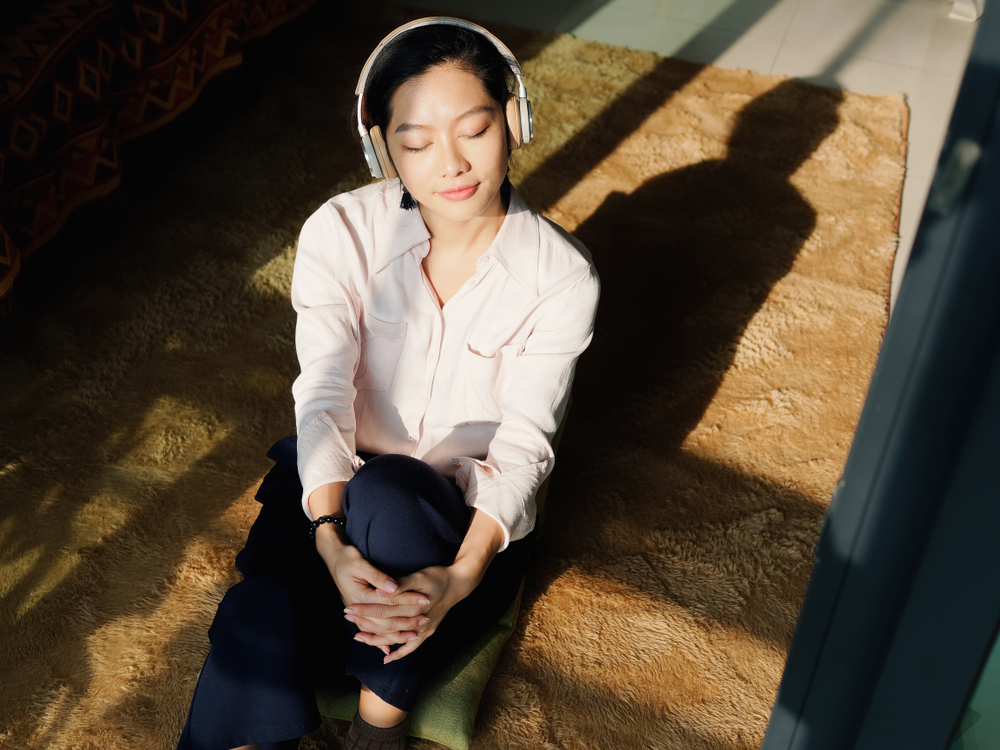Since ancient times, music has been used to improve our health and mental well-being. The Greek philosopher and mathematician Pythagoras had a firm belief in the healing power of music, while the Roman medical encyclopaedist Celsus said that it should be used to calm and cheer patients. During the bubonic plague, music was even prescribed by doctors for health purposes. And during the current coronavirus pandemic, music — whatever kind you enjoy — can play an important role in improving your mood and lowering stress.
“Historically, music was believed to have special properties related to the ability to impose order on the body,” Simon Durrant, Ph.D., D.Phil., the Director of Research at the University of Lincoln’s School of Psychology in the United Kingdom, tells Thrive. Music was also seen as an aid to maintaining a positive mental attitude.
The ancients had it right. There is scientific evidence that music can impact the way we feel, Durrant says. “Just as we regulate our body temperature, we also need to regulate our mood, and music is a key mechanism for that.” He points out that listening to music can lead to decreased anxiety, and can activate areas of the brain involved in emotion regulation. One study found that listening to music even once a week led to an improvement in symptoms of depression after less than a month. And there is tentative evidence, Durrant notes, that music has a positive impact on our immune function.
Given the undisputed therapeutic benefits of music, taking a moment to listen can be especially helpful as we navigate COVID-19. The BBC just re-broadcast renowned composer Max Richter’s 2015 eight-hour epic lullaby, Sleep. You can listen to the composition on Spotify or Apple Music.
“I wrote Sleep as an invitation to pause our busy lives — I felt we were getting data saturated,” Richter tells Thrive. “Now, in these troubled and difficult times, we’ve got a roadblock in our normal lives. And I hope that Sleep can bring a bit of tranquility into this very anxious moment.”
This is a time when people can focus on what really matters to them, Richter points out. “We can focus on the big stuff — family, love, creativity — as we ask, what’s it all for? All creative work can really help us with our relationship to those big questions.”
As you ponder those questions yourself, and navigate the stress and uncertainty of our challenging times, here are some additional ways that music can help, and some inspiration for you to start listening.
Listen to slow music to calm down
If you are feeling anxious, slow, quiet music without lyrics, like Mozart or new age pieces, will help lower your stress, Durrant says.
Listen to exciting music to energize yourself
Music has a direct impact on our heart rate, Durrant says. More exciting music, which tends to be faster and louder, yields a faster heart rate and respiratory rate. “It’s an effective way to get the blood pumping,” he adds. “To get your daily exercise, listen to dance music and have your own private party.”
Listen to your favorite songs to feel less lonely
Music can be a great distraction from concerns, Durrant notes. If you’re isolating on your own, music can break up the background silence, which can feel oppressive for some people. “It has to be music that you like, otherwise it will simply make you feel worse,” he says. “Tailor the music to the purpose or mood that you want to achieve.”
Listen to relaxing music at bedtime
Durrant’s own 2018 study found that music can help people of any age in getting a good night’s sleep. This is especially important during the coronavirus pandemic, when it’s common to experience a racing mind. In Durrant’s study, along with Bach and Chopin, participants reported that Ed Sheeran and Coldplay helped them fall asleep, although music without lyrics works best. Durrant says that listening to what you love is most important. Once you are in bed, he says, set a timer, so the music stops after 30 minutes, so it keeps from disrupting your rest.
Follow us here and subscribe here for all the latest news on how you can keep Thriving.
Stay up to date or catch-up on all our podcasts with Arianna Huffington here.


